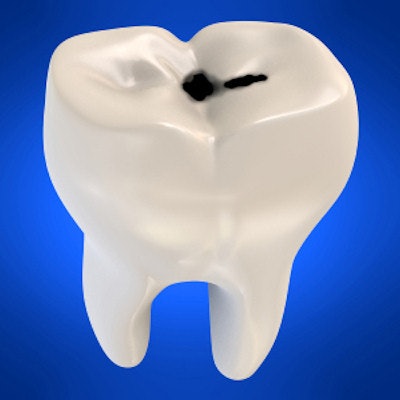
Children who grew up with household dysfunction were more likely to have tooth decay in a new study, published in the Journal of Public Health Dentistry on August 28.
Also, children who experienced more than four adverse childhood events -- such as having divorced parents or witnessing domestic abuse prior to age 18 -- were less likely to visit a dentist for preventive care.
Researchers conducted a cross‐sectional study using nearly 33,400 respondents from the 2016 National Survey of Children's Health (NSCH). The children involved were ages 6 to 17. The team used sociodemographic information, oral health, and healthcare-utilization information, as well as the responses guardians gave about the children's adverse childhood experiences.
The survey measured adverse childhood events as the following:
- Parental divorce, separation, or death
- Parental death
- Witnessing household or neighborhood violence
- Living with a person diagnosed with mental illness
- Living with someone who had a substance abuse problem
- Racial/ethnic mistreatment
- Economic hardship
Most children (88%) had a preventive dental visit in the last 12 months, but those who experienced four or more traumatic childhood events were less likely to have had a preventive visit than children who experienced fewer events (80% versus 89%).
Nearly 27% of children with four or more traumas had tooth decay, while only 12.5% of children who had fewer than four traumas had tooth decay.
The findings also showed the importance of addressing the surge in foster care enrollment due to the opioid and heroin addiction epidemic, wrote lead author Elizabeth Crouch, PhD, deputy director of the Rural and Minority Health Research Center at the University of South Carolina Arnold School of Public Health in Columbia.
Dr. Crouch and colleagues recommended that the forthcoming U.S. surgeon general's report on oral health consider how adverse childhood experiences factor into the training of oral healthcare providers.
Regarding study limitations, the authors noted that self-reporting about tooth decay can be less accurate than clinical metrics and that adults may not have known or been comfortable talking about domestic violence or other incidents.
Knowing that childhood trauma can hinder caregivers and children from engaging in preventive oral healthcare and treatment, pediatricians, dental hygienists, and dentists should look for at-risk children and take appropriate actions, the study authors concluded.
"The information provided in our study can inform policies and programs that support children's oral health, through the identification and mitigation of childhood trauma," they wrote.




















